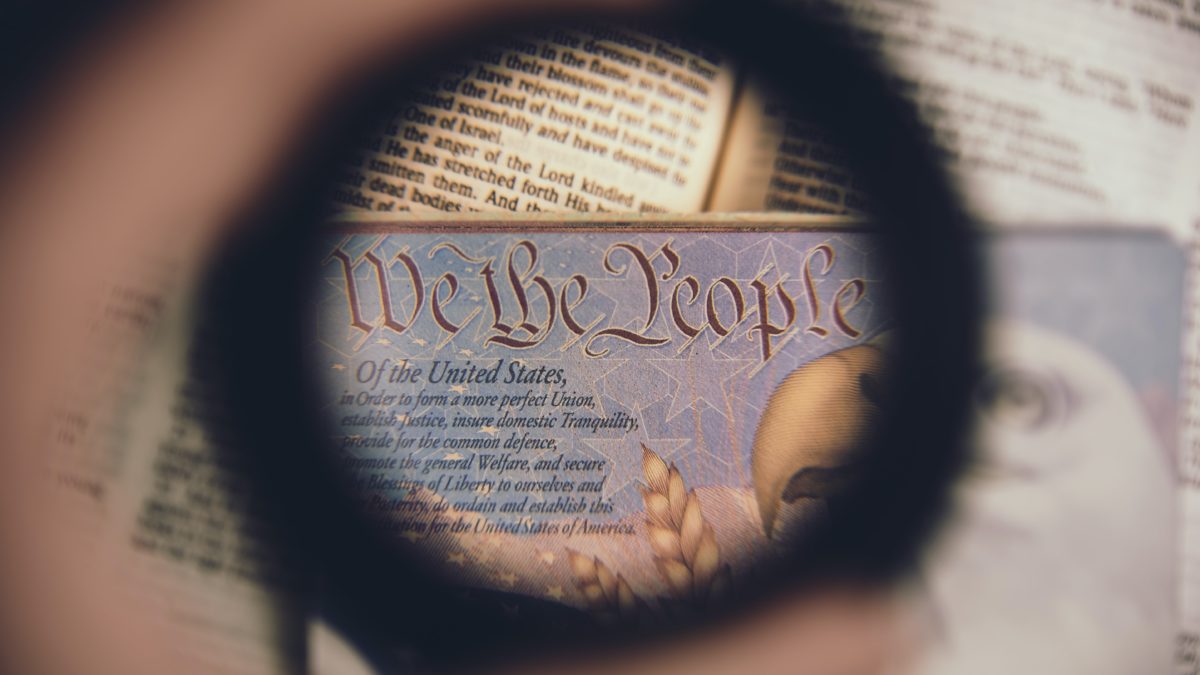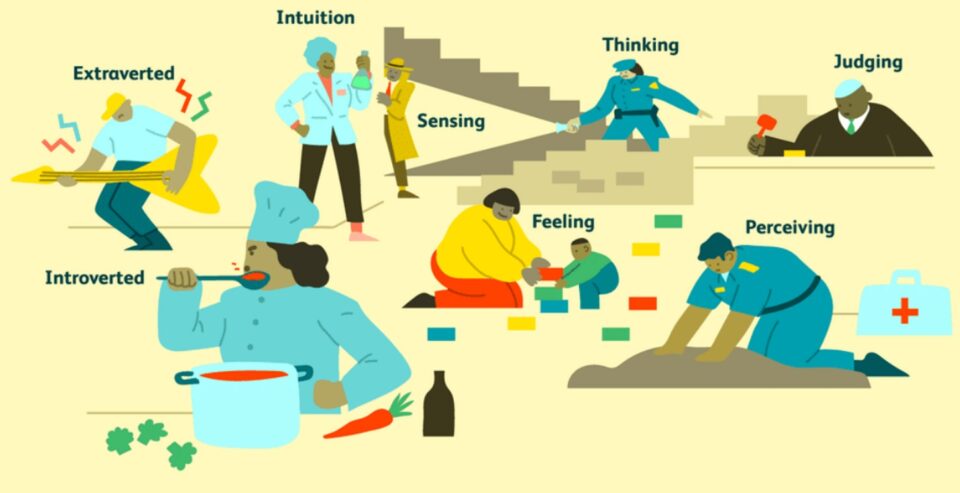A Christian Nation? Yes and No

Christian nation
“A Christian Nation? Yes and No”
Rev. Dr. Tony Larsen
7-7-2019
Was this country founded as a Christian nation? Religious conservatives often say yes; liberals usually say no. And both can marshal quotes from the “founding fathers” to support their views. But the truth is actually a little murkier than that.
Now, for those who really want to go back to the beginnings of this country, of course it was not originally founded by Christians. It was founded by tribes of “First Peoples,” or Native Americans, who had their own usually-very-earth-centered religions. So this land was not originally Christian in that sense.
However, after Christopher Columbus came and opened up the “New World” to European migration, it is true that virtually every group of white settlers believed they were coming here to establish a Christian state. Only “Christian” in those days almost never included Catholics. (Sometimes it didn’t even include Anglicans or Lutherans, who were thought to be too “papist” to be considered true Christians!)
Consider the first 13 colonies. Virginia was chartered in 1606 by King James I (he of the King James version of the Bible) with the goal (it says right in the charter) of bringing Christianity to those “living in darkness and miserable ignorance of the true knowledge and worship of God” – in other words, to the Native Americans already here! So Christianity was part of the charter of the first American colony.
But not just any Christianity. Pamphlets urging English citizens to settle Virginia said very clearly: Bring “no traitors nor Papists that depend on the Great Whore” (the “Great Whore” being, of course, the Pope). So yes, the first white settlement in America began as a Christian colony – but with a somewhat narrow view of what “Christian” meant.
Massachusetts was the second colony to be settled. It too was settled as a Christian state, but its definition of Christianity was even narrower. That’s because it was founded by Puritans, who were called that because they were trying to “purify” the Church of England, which they thought was still too Catholic. (Among the “popish” practices they opposed, by the way, were these: kneeling for communion, bowing to the altar [even bowing to the name of Jesus], organ music [they called organs the devil’s bagpipes], and celebrating holy days [especially Christmas]. They would not have understood why their spiritual descendants want store clerks to say “Merry Christmas” to customers instead of “Happy Holidays.” They would have wanted them to say neither. One of history’s ironies!)
Now, those Puritans who thought the Church of England (The Anglican Church) was far too corrupt to be purified were called Separatists, or Pilgrims. But what they all agreed on was that Massachusetts was to be a “Holy Commonwealth.” As one of their leaders, John Cotton, put it: “Theocracy, or to make the Lord God our governor, is the best form of government in a Christian commonwealth.” Which is what they certainly believed Massachusetts to be!
Basically, all but one of the original 13 colonies were founded as Christian realms – though they did not always agree with each other on what counted as Christian. Virginia, Georgia, and the Carolinas were Anglican, and they of course disliked the Puritans.
Massachusetts, Connecticut, and New Hampshire were Puritan, and they disliked the Anglicans. But what everyone agreed on was disliking the Catholics. As for the other colonies, New York started out not as an English colony but a Dutch colony (in fact, it was originally called New Amsterdam), and as such it was partial to the Dutch Reformed Church. However, because the “old” Amsterdam was the trading center of Europe, the Dutch colonists (like their relatives back home) tended to be a little more tolerant of religious diversity, and the Dutch Reformed Church was never officially established. (Even here, though, there were limits. Jews were harassed, restricted in the occupations they could pursue, and taxed more heavily than other citizens; and the administrator of the colony wrote that tolerating Jews, which was “repugnant” in and of itself, might make it hard to restrict Catholics and Lutherans!)
Now, the next two states I’m going to mention – although established as colonies for particular religions – were tolerant of other faiths, at least in the beginning. But in an example of “no good deed goes unpunished,” they didn’t end up that way. One of these was Quaker; the other one Catholic.
Pennsylvania was established as a Quaker colony (by the Quaker, William Penn), and was probably the most religiously diverse colony in the New World. But the problem was this: Since the legislature was controlled by Quakers, and Quakers didn’t believe in war, they refused to raise an army to defend their citizens from marauding pirates and Indians. So the tolerant Quakers came to be seen as religiously intolerant because of their opposition to war, and soon lost control of the colony.
And then there’s Maryland. What a sad story. Maryland was established (in 1632) as a Catholic colony, but very tolerant of other Christian faiths. But in another example of “no good deed goes unpunished,” the Protestants who had been allowed to live there, eventually came to outnumber the Catholic population and began harassing them. In fact, by 1700 Catholics couldn’t buy or inherit land in Maryland, Catholic priests were sentenced to life imprisonment, and any informant who found a priest saying Mass could get a 100-pound reward for turning him in. That was Maryland- going from tolerant Catholic refuge in 1632 to anti-Catholic government in less than 70 years!
The only colony that wasn’t founded as a religious state was the tiny territory of Rhode Island (established by the Baptist leader Roger Williams)-though, even here Jews had limited rights.
I mention all this because many religious conservatives like to say this nation is founded on the Christian religion – and while it’s true that most of the original colonies were founded as Christian realms, they often acted in what we would probably consider decidedly unChristian ways.
Also, despite our homey stories about the first Thanksgiving, with Pilgrims and Indians sharing a banquet together – that was more of an exception than the rule. Our Pilgrim ancestors were more likely to kill Native Americans, or steal their land, than to share a meal. And, though they came to the New World so they could practice their religion freely – they never intended for anyone else to have that freedom. They were the most intolerant of the bunch! The Boston Puritan leader Increase Mather, for example, said, “The Toleration of all Religions and Persuasions, is the way to have no religion at all.” So, Baptists were banned from the territory. Catholics too, of course – though out of a tiny bit of compassion, Puritans allowed that if a Catholic was shipwrecked on their shore, he or she didn’t have to be killed – just banished. And as for the Quakers: If a Quaker refused to leave the commonwealth, he or she was usually whipped for a first offense, had an ear cut off for a second, and was executed for a third. And there are some very gruesome stories of men and women who were tortured and killed for trying to be Christians in their own way. Like Mary Dyer who, with another Quaker woman, was stripped to the waist, tied to a whipping pole, and whipped until blood flowed from her back and her breasts. Eventnally the Massachusetts commonwealth executed her for refusing to recant her faith.
So … yes, most of the original colonies were founded as Christian realms – but I think Jesus would have had a hard time recognizing them as his namesakes. Also, although religious conservatives will sometimes say our country was founded on Judeo-Christian values – there wasn’t that much “Judeo” in those Judeo-Christian values. So, I would say, “Judeo-Christian? Wrong on both counts.”
Which brings us to the time of the American Revolution and the writing of the Constitution. The first amendment to that Constitution (the first ten are usually called the Bill of Rights) – the first amendment says: “Congress shall make no law respecting the establishment of religion or prohibiting the free exercise thereof.”
Now, we tend to think of that amendment as forbidding all government entanglement with religion. But that’s not what it said or meant. It said the federal government (that is, the Congress) could not establish or prohibit any religion, but the States certainly could. And, in fact, that’s largely why the amendment was passed. Almost every state had its own religion and didn’t want the federal government telling it how to regulate that religion – because they wanted to regulate it themselves!
In fact, of the 13 colonies (now states), that ratified the constitution, only two offered full religious freedom to their citizens: Virginia (which had been officially Anglican but was now open to all) and, of course, good old Rhode Island. The other states regulated religion in some way and actually saw the First Amendment to the Constitution as guaranteeing their right to do so. So, New Jersey, Vermont, North Carolina, and Georgia kept their ban on Catholics from holding office. Maryland didn’t go that far – but you still had to be a Christian to run for office. Delaware said you had to believe in trinitarian Christianity. Pennsylvania (original home of the very tolerant Quakers) said you had to acknowledge that the scriptures of the Old and New Testament were given by divine inspiration. South Carolina said in its constitution that “Christianity is the true religion.” And in both Connecticut and Massachusetts everyone paid taxes to support the Congregational Church.
It’s true that in 1796 George Washington signed a treaty with Tripoli (a Muslim nation) saying “…the Government of the United States of America is not, in any sense, founded on the Christian religion.” But there are three things to remember here. One: He was talking about the federal government, not the state governments, which could and did have established religions. (Massachusetts kept its religious establishment all the way up to 1833.) Two: He wrote these words to try to allay the fears of a Muslim nation that thought we were going to engage in a religious war against it – so how much he really believed that is up in the air. Three: This statement doesn’t define what “founded on” really means. (Or at least meant then.) Certainly this country was settled largely by people who considered themselves Christians; and most of the original colonies that united to become the new nation didn’t give up their right to regulate religion until much later.
And now, before I tum it over to you, let me close with two “delicious” ironies. The Puritans were generally the most intolerant of the Christians who settled this land. However, they did do something that – by the law of unintended consequences, you might say – paved the way for more tolerant and more progressive practices later on. For example, because the Bible was so important to their faith, they established schools everywhere they settled, so that people could learn to read it for themselves and not be dependent on king or pope to interpret religion for them. But once you encourage people to read for themselves – whether it’s the Bible or any other book – you start sowing the seeds of pluralism!
Ironically, many of the things we now regard as progressive – like literacy, democracy, free thought – came about because of our Puritan ancestors, even if that was not their original intent. Indeed, the Unitarian side of our Unitarian Universalist religion grew out of those early Puritan churches. That’s why many of those early Puritan churches in Massachusetts (including the one in Salem where the witch trials were held) are now Unitarian.
And the second irony: Although many religious conservatives today oppose the separation of church and state, there was a time when they were its greatest champions. Picture this: 210 years ago last Sunday-on New Year’s Day, 1802-President Thomas Jefferson stood at the front door of the White House watching a horse-drawn carriage ride up and deliver a big round of cheese. By big I mean 1 ½ feet high and 4 feet in diameter, weighing over a thousand pounds, and having been produced by over 900 cows. It was a gift to him from a Baptist church in western Massachusetts. President Jefferson, who had been attacked during the 1800 presidential election as an atheist – in fact a Federalist newspaper had quoted his statement that “I don’t care whether a man believes in one God or twenty” and said the election was a choice between “God- and a religious president … [or] Jefferson and no God” -Jefferson, who’d been labeled as an anti-Christian infidel, was receiving a gift from what we would consider conservative Christians. And the reason is that he was for separation of church and state! Baptists of his day appreciated his efforts to keep government and religion unentangled. The “wall of separation between church and state” that many Southern Baptists today decry (and some even consider anti-American) … was at one time the rallying cry of their spiritual ancestors. And I say, with Jefferson: Honk if you love cheeses.
***For more information and detail on America’s religious underpinnings, see Founding Faith: Providence, Politics, and the Birth of Religious Freedom in America by Steven Waldman (Random House: 2008) – from which I got much of the material for this sermon.



